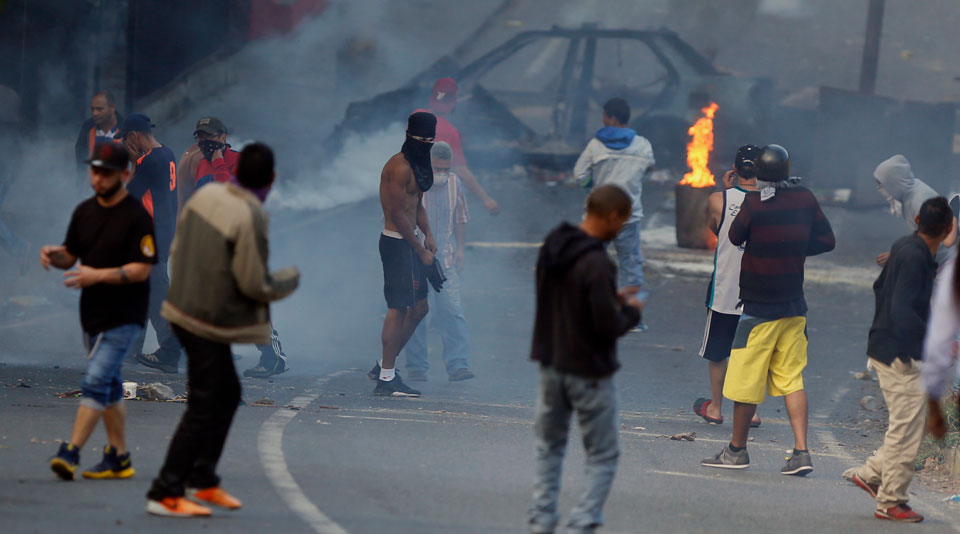
A coup orchestrated by the U.S. government is unfolding in Venezuela. Alternative media in the United States are offering plenty of analyses in English, but anti-imperialist opinion from Latin America on what’s happening is less accessible. The views of several such commentators may be instructive. We present excerpts taken from their writings.
Edited and translated by W. T. Whitney Jr.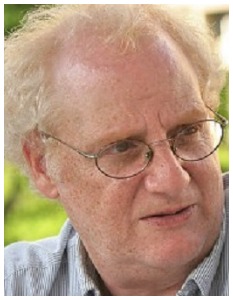
David Brooks is the U.S. correspondent for La Jornada newspaper in Mexico City. As per the following remarks, he recently critiqued the lack of discussion in the United States about U.S. intervention in Venezuela:
In that country, it’s [theoretically] possible to openly and publicly debate the issue of whether or not to intervene in another country, but the imperial arrogance there is always astonishing. Almost no one asks whether or not that discussion is legitimate. Nor is the question asked if indeed the United States has the right and moral authority to define the future of another country. But it does so despite a long U.S. history of interventions and illegal wars, all carried out while deceiving the people there.
These interventionist adventures can be useful for politicians, above all in moments of crisis like the one bearing down on the Trump regime now. Decision-making almost always has nothing to do with the American people, but instead is all about the idea that U.S. leaders have the right, even the duty, to change any regime that isn’t cooperating or serving their interests…
But just as with all the wars, invasions, and interventions set up in the past 170 years, including against Mexico, official propaganda comes wrapped up in pretty ribbons of rhetoric about defending “democracy,” “freedom,” and “human rights.” Sadly enough, this is still happening and especially when the media asks no questions and when social networks are proving to be so useful in promoting even the propaganda of the most deceitful regime in recent history.
Ever since Hugo Chávez came to power in Venezuela, bipartisan consensus has prevailed in the United States in favor of régime change. The only differences are about how to achieve it. That’s the situation with Cuba too. 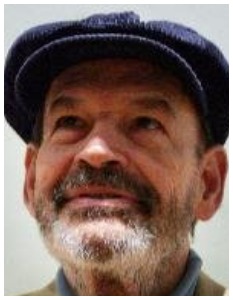
Ángel Guerra Cabrera is a veteran Cuban journalist and commentator on international affairs who also writes for La Jornada. On January 23, he characterized Venezuela’s breaking off of diplomatic relations with the United States as “an act of dignity lacking these days in Our America and in the world.”
He continues: It’s the only way of responding so as to defend sovereignty against a barefaced U.S. attempt to impose a parallel government in Bolivar’s homeland…
Maduro is the legitimate president of Venezuela, chosen in democratic and transparent elections and certified by the same electoral entity that recognized the 2015 victory of the opposition in parliamentary elections. He is not only the political and military leader of the Revolution but also a patient, hardworking, and unbreakable advocate for peace…
Maduro on repeated occasions has done what’s possible, and even impossible, to manage a graceful way out for both sides, which is dialogue with the opposition. In fact, at one point he was on the verge of finding that solution in the Dominican Republic through talks mediated by Danilo Medina, president of that country, and by the former president of Spain, José Luis Rodríguez Zapatero. But when the Venezuelan government and the opposition had reached agreements that would give substance to a political solution to the conflict, it was aborted moments before it was to have been signed. That happened by means of a brutal demand delivered over the telephone to the opposition delegation by the former Yankee Secretary of State Rex Tillerson.
…Imperialist lackeys in Venezuela have obeyed the insolent order issued on Tuesday by the U.S. vice president to initiate a new coup d’etat. The self-swearing-in by the on-call clown Juan Guaidó as “interim president”—a totally unconstitutional office—is in effect a response to the instruction handed down the day before by Mike Pence. The grotesque choreography of that drama is part of the plot conceived of years ago by the Southern Command of the Yankee armed forces. … [As regards Guaidó,] the only one who elected him is the president of the United States. Governments recognizing the puppet are the scum of neo-liberalism, the ultra right, and neo-fascism.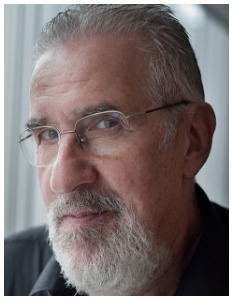
Commentary by Atilio A. Borón, an academic based in Buenos Aires and member of the Political Bureau of Argentina’s Communist Party, is a staple of progressive media in Latin America. He writes:
The emperor handed down his ukase and anointed Juan Guaidó as president, a nobody of Venezuelan politics, unknown by the immense majority of the population, but construed as “ready to wear” by the North American media and marketers in the last two weeks.
The coup attempt exalted by thugs in the media will stumble over many obstacles. It’s not the first time in Venezuela’s modern history that the White House has recognized a president this way—for example, Pedro Carmona on April 11, 2002. He lasted barely 47 hours in government and ended up in prison. Will it be different this time? Hard to tell.
Guaidó could seek refuge in a friendly embassy in Caracas… Or he could be installed in some city along the frontier with Colombia. With Trump’s blessing, the foul-smelling OEA [Organization of American States] and Latin American neo-colonies would proclaim a new republic there, protected by Colombian “paramilitaries” and the narco-government of Duque and Uribe. It would demand recognition by the OEA and United Nations.
…Either of these scenarios would confirm for the umpteenth time that if there’s anything the imperialists and the Venezuelan right wing don’t want, it would be dialogue and playing the game according to democratic rules. It’s clear they are both looking for confrontation, following either the Libyan or Ukrainian model. They are different, but similar in the thousands of killings and the hundreds of thousands of refugees that both countries have created.
But “fake news” aside, things won’t be so easy for people stealing presidential power. The Chavista base is very firm and the same can be said of the Bolivarian armed forces. One military “solution” would have North American troops being sent to Venezuela. … That would be like repeating the Bay of Pigs fiasco, or, on a larger scale, the war in Vietnam. And beyond that, the military situation in Colombia would be destabilized with the reappearance of guerrilla warfare. Washington’s aggressiveness toward Venezuela may reflect U.S. military defeat on the way in Syria after six years of gigantic efforts to bring down Bashar al Assad.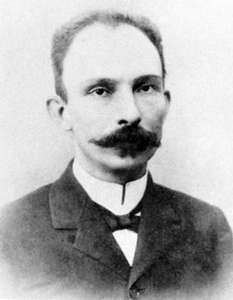
Lastly, Cuba’s national hero José Martí speaks. Luis Toledo Sande, his biographer, recently provided a sample of Martí’s ideas that help explain why he became a pre-eminent Latin American opponent to U.S. imperialism. Toledo Sande highlights one of Martí’s big goals in organizing rebel forces to fight for Cuban independence from Spain beginning in 1895:
“The letter he wrote the day before his death in combat becomes his testament. He viewed his duty as that of achieving ‘an independent Cuba that would become the means for stopping the United States in time from advancing throughout the Antilles and with that new power, falling on our American lands.’”
Martí’s view, as relayed by Toledo Sande, was that if the United States “in pursuit of its expansionist interests” was able to continue with its continental intervention, “it might succeed in disrupting the global balance of power among nations. [But] independence for Cuba might preserve that balance.”
He further observes, “In his time, Martí saw public opinion in that nation being manipulated by powerful forces in a criminal way. And he maintained categorically that oppressors there handled the electorate not as a ‘well-bred steed,’ but rather as a ‘tame and sly mule.’”



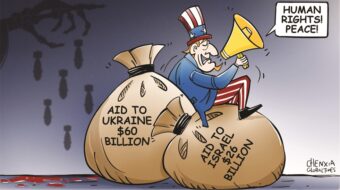








Comments